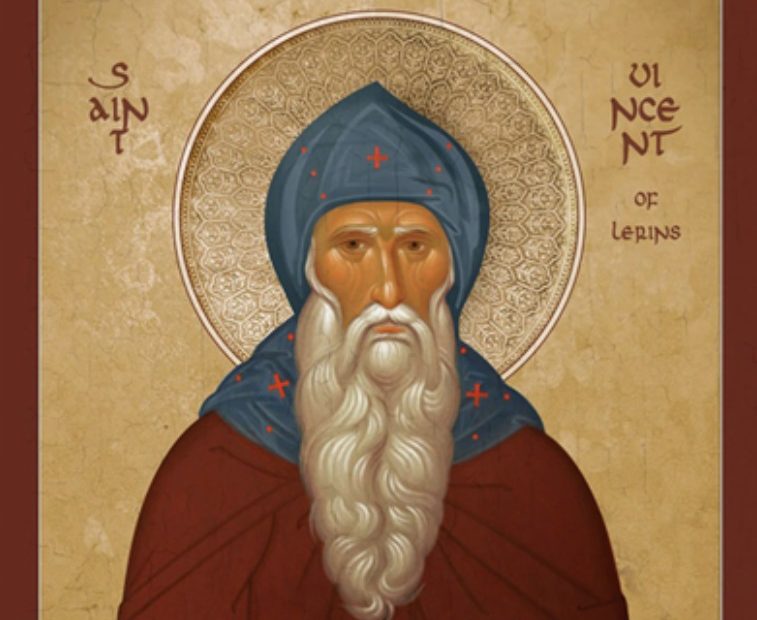Saint Vincent of Lerins (24 May)


Born in the late fourth century in Toulouse in Gaul, Saint Vincent initially served in the military, but later left the world to become a monk at the renowned Lérins Monastery, where he was ordained to the priesthood. He is widely known for his work, Commonitorium, which he wrote around the year 434 AD, in which he differentiated between the Church’s teachings and the heresies of his time.
He is remembered for writing that Christians must follow the true faith that has been held “everywhere, always, and by all.” He also defended the term “Theotokos” with regard to the Mother of God in opposition to the teachings of Nestorius that were condemned at the Third Ecumenical Council.
Saint Vincent died peacefully in 456 AD. His relics are preserved at Lérins.
Saint Vincent was born in Toul in Gaul; he was the brother of Saint Lupus, Bishop of Troyes, who was a companion of Saint Germanus of Auxerre. Saint Vincent was first a soldier, then left the world to become a monk of the renowned monastery of Lerins, where he was also ordained priest. He is known for his Commonitorium, which he wrote as an aid to distinguish the true teachings of the Church from the confusions of heretics; his most memorable saying is that Christians must follow that Faith which has been believed “everywhere, always, and by all.” He wrote the Commonitorium about the year 434, three years after the Third Ecumenical Council in Ephesus, which he mentions in the Commonitorium, and defends calling the holy Virgin Theotokos, “She who gave birth to God,” in opposition to the teachings of Nestorius which were condemned at the Third Council.
Without identifying by name Augustine, Bishop of Hippo, Saint Vincent condemns his doctrine of Grace and predestination, calling it heresy to teach of “a certain great and special and altogether personal grace of God [which is given to the predestined elect] without any labour, without any effort, without any industry, even though they neither ask, nor seek, nor knock” (Commonitorium, ch. XXVI). See also Saint John Cassian, February 29; Saint John Cassian wrote his refutations before, and Saint Vincent after, the condemnation of Nestorius at the Third Council in 431, and the death of Augustine in 430. Saint Vincent reposed in peace about the year 445.
Apolytikion of Saint Vincent of Lerins
Fourth Tone
With wisdom hast thou made plain to all the Orthodox Faith as that which alone hath been believed and honoured by all men, always and everywhere, also showing heresy to be innovation, groundless and unstable as a gust in a tempest. O Vincent, thine invincible prayers shelter the Church of God.
Source: oca.org / goarch.org




